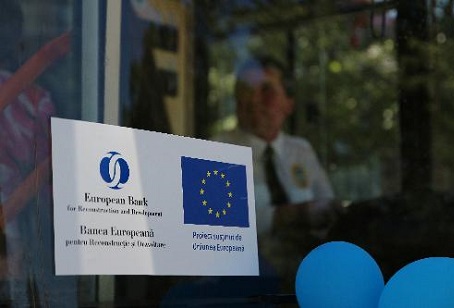EBRD and EU step up support for small businesses in Georgia

The European Bank for Reconstruction and Development (EBRD) and the European Union (EU) are stepping up their efforts to support small and medium-sized enterprises (SMEs) in Georgia, Ukraine and Moldova.
A joint program will help local SMEs get loans needed to upgrade their production facilities and seize new trade opportunities with the EU, and EU official said.
"Small businesses are crucial to stimulate growth and create jobs. I am happy to announce the launch of this new program that will help local businesses take full advantage of the Association Agreements and the Deep and Comprehensive Free Trade Areas,” Johannes Hahn, European Commissioner for European Neighbourhood Policy and Enlargement Negotiations said during his visit to Tbilisi.
EBRD director Caucasus, Moldova and Belarus, Bruno Balvanera added: "We are pleased with this new opportunity to extend our support to local small businesses. The EBRD has a strong track record in this sector which provides a solid platform to build on. Our joint program with the EU will benefit local banks as on-lenders and local businesses as recipients through the provision of finance and the sharing of know-how and expertise."
The program will provide much needed finance to local entrepreneurs through an EU grant of €10 million, that will be used to guarantee at least €69 million of EBRD financing for SMEs in Georgia, Moldova, and Ukraine, targeting individual investments between €0.5 million and €10 million, mainly for medium-sized companies. This program is part of a facility supporting the implementation of the Deep and Comprehensive Free Trade Area.
The DCFTA facility for SMEs is a regional initiative of the EU and the European Financing Institutions aiming at mobilising about €150 million of EU grants to unlock approximately €1.5 billion of investments in SMEs in Georgia, Moldova and Ukraine.
The DCFTA facility for SMEs constitutes an unprecedented investment from the EU in Moldovan, Georgian and Ukrainian SMEs, which will boost trade between the EU and these three countries. It will also increase EU foreign direct investment inflow in the country, but also participate in the transformation of business fundamentals - thereby contributing to fostering growth and ultimately creating jobs and welfare.
The EBRD, owned by 64 countries and two inter-governmental institutions, supports the development of market economies and democracies.
 Tweet
Tweet  Share
Share